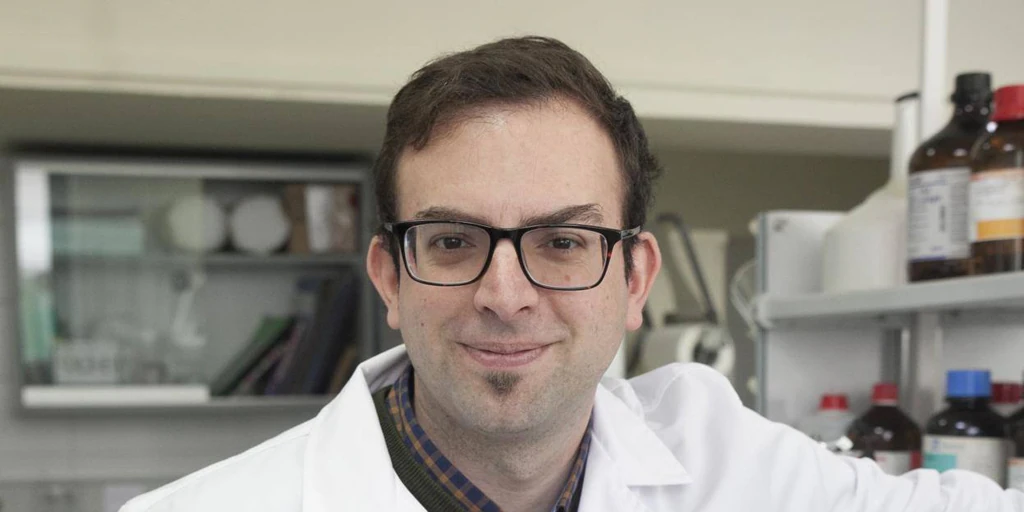The news jumped to all nationals: the chemist Rafael Luque (Córdoba, 1978), one of the most prolific and cited scientists in the world, has been suspended from employment and salary for the next 13 years by the University of Córdoba. Luque, accustomed to appearing in the media for being one of the 6,000 researchers whose work has the most significance in the world (Highly Cited Researchers), or for the various awards received, such as the Green Talents from the Federal Ministry of Education and Research BMBF (Germany ) or the TR35 of MIT (USA), is now the target of criticism: the university has expelled him alleging that he has signed work with foreign institutions, such as the King Saud University, in Riyadh (Saudi Arabia) or the Russian Friendship University de los Pueblos (Russia), despite having a full-time civil servant contract with the Spanish institution.
Luque does not deny the facts, which were advanced by El País. “It is true that I knew about this incompatibility that occurred because I did not reach an agreement with the management team of the University of Córdoba,” he explained to ABC in a videoconference from Saudi Arabia, where he is now working as a part-time professor. «I have been out of that center since last December, when the suspension became effective. I have no problem with the University of Córdoba, which has been my home and which has given me everything as a researcher; My problem is with a part of the previous rectory team, with whom there was not a good understanding and it has made my job very difficult in recent years.
ABC has tried to contact the university, although so far there has been no response.
many collaborations
Fame (and also the seed of the problem, according to Luque) began in 2018, when he entered the famous list created by the company Clarivate Analytics, owner of the famous Web of Science database tool, which includes the main world scientific production. , offers this list of 6,000 highly cited researchers since 2014. There it was recognized that 75% of their works are published in the main international journals and 84% are cited in other scientific works. “There, too, my collaborations skyrocketed and that caused a lot of envy,” says the researcher.
Throughout his career he has published close to 700 studies focused mostly on so-called green chemistry or sustainable chemistry, which consists of designing chemical products and processes to reduce or eliminate the use or generation of hazardous substances. Besides, he is part of several peer review teams of different scientific journals. And he also collaborates with many of his students, which he says explains the large number of jobs in which he is present.
«It may be that I contribute ideas that other people then work on or that seek financing; I also check the texts. Those who know me know all the work behind it », she defends herself. Because many criticize the high production of studies in which he signs: only so far this year, Luque has been present in 58 investigations (which gives an average publication of a study every 37 hours). «It is true that since December I have been using the ChatGPT tool to correct some texts from students who do not have a high level of English and that makes things easier for me; but it is only a support and I review the final result », she assures.
It is also true that it is not the first time that Luque has faced controversy. Two professors from the University of La Laguna denounced in 2011 that one of his students had appropriated data from his laboratory and had published it on his behalf, with Rafael Luque as the only co-author. A court in Santa Cruz de Tenerife sentenced Luque and the former student last year for committing a crime against intellectual property, but the Cordovan researcher defends himself by stating that he only helped him review the article and publish it, and that he has appealed the sentence . «I have a relationship with many of my students, who are now teachers; I even have ‘scientist grandchildren’, students of my pupils. It’s in my character and those who know me know who I am and how I work. They will never speak ill of me », he indicates. In fact, the university does not allude to its quality, only to the incompatibility of signing from another foreign institution.
‘Publish what perishes’
Being present in so many studies is not a trivial matter: CVs ‘weigh’ more the more signatures the researcher has to his credit and the more other colleagues cite him; and universities fight over these prolific authors, since it gives them a status that attracts prestige, students and, therefore, money. This fact has generated a situation known as ‘Publish or Perish’ (publish or die), which has given rise to what many describe as a perverse situation. “It is true that there is brutal pressure among researchers to publish,” acknowledges Luque, who admits to being aware that the situation has gone so far as to have a hidden market for the “purchase and sale” of scientific articles.
«In Asian countries it reaches such an extreme that it is no longer just important to publish, but the relevance of the magazines that publish the article. They are ferocious practices that I fight against”, affirms Luque, who claims to have “a completely clear conscience”, since his high production is linked to the extensive number of collaborations. «The people who are criticizing me have no idea of all the work that is there, how many hours I sleep, that I dedicate myself body and soul to my work. Those who know me will never say anything.
